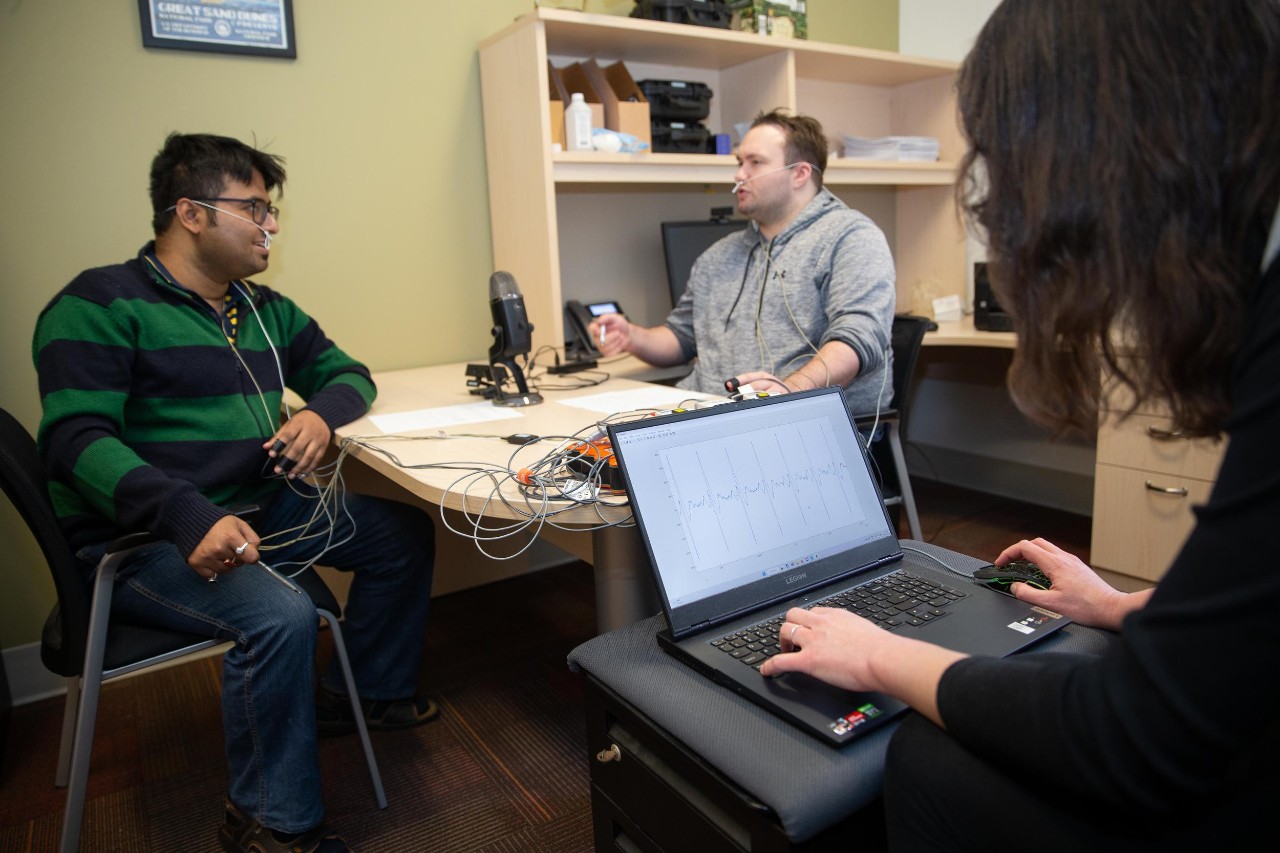
WFXB FOX: Computer can tell if you're a match
UC trained a computer to identify types of conversations based on the participants' physiology
WFXB Fox-TV highlighted research by engineers at the University of Cincinnati who taught a computer to recognize types of conversations based on the participants' physiology alone.
Researchers studied a phenomenon in which people’s heart rates, respiration and other autonomic nervous system responses become synchronized when they talk or collaborate. Known as physiological synchrony, this effect is stronger when two people engage deeply in a conversation or cooperate closely on a task.
In experiments with human participants, the computer was able to differentiate four conversation scenarios with as much as 75% accuracy. The study is one of the first of its kind to train artificial intelligence how to recognize aspects of a conversation based on the participants’ physiology alone.
The study was published in the journal IEEE Transactions on Affective Computing.
Lead author and UC doctoral student Iman Chatterjee said a computer could give you honest feedback about your date — or yourself.
“The computer could tell if you’re a bore,” Chatterjee said. “A modified version of our system could measure the level of interest a person is taking in the conversation, how compatible the two of you are and how engaged the other person is in the conversation.”
UC Associate Professor Vesna Novak said this field of affective computing could provide feedback to educators, therapists or other people who want to understand what's really going on in interpersonal dynamics.
Featured image at top: UC engineering students connected to sensors have a conversation while UC Associate Professor Vesna Novak monitors their physiological responses on a computer. Photo/Andrew Higely/UC Marketing + Brand
More UC engineering in the news

A computer screen shows the physiological responses of a person engaged in conversation. Photo/Andrew Higley/UC Marketing + Brand
- Jerusalem Post: New app can tell if you're a match
- Science Daily: Smash or Pass? This computer can tell
- India AI: Is your date a 'smash' or 'pass?'
- Gadzetomania (Poland): This computer can tell if you're a match
Related Stories
Love it or raze it?
February 20, 2026
An architectural magazine covered the demolition of UC's Crosley Tower.
Social media linked to student loneliness
February 20, 2026
Inside Higher Education highlighted a new study by the University of Cincinnati that found that college students across the country who spent more time on social media reported feeling more loneliness.
Before the medals: The science behind training for freezing mountain air
February 19, 2026
From freezing temperatures to thin mountain air, University of Cincinnati exercise physiologist Christopher Kotarsky, PhD, explained how cold and altitude impact Olympic performance in a recent WLWT-TV/Ch. 5 news report.
